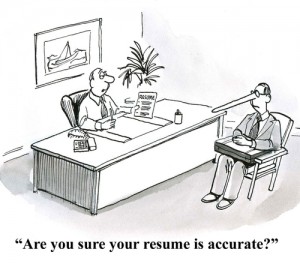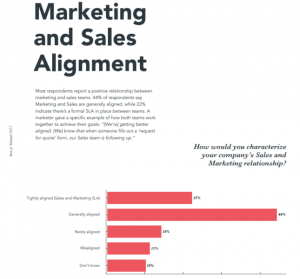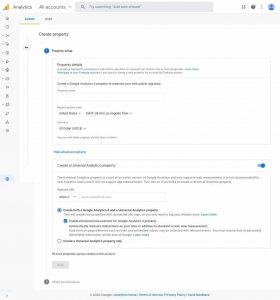
While we all tend to sometimes “exaggerate” some of our experiences and accomplishments, one place to strictly avoid this tendency is in your résumé. Exaggerating or even stretching the truth can potentially have career-ending/altering consequences. Just go ask Brian Williams, the erstwhile NBC news anchor who recently admitted publicly that he took some, shall we say, “liberties” when describing some of his career experiences.
To briefly recap, Williams, an otherwise talented and respected broadcast journalist, finally fessed-up that he was not actually aboard a helicopter that was shot down while on assignment in Iraq in 2003—contrary to the story he had been telling (and re-telling) for going on 12 years.
Poor Brian. As this is being written he is on a six-month unpaid leave, presumably to give him some time to mull over his ill-advised actions.
Now that the job market finally seems to be on the mend, you may be tempted to “fudge” a little bit on your résumé, under the assumption that any risk of exposure is somewhat reduced because hiring managers today aren’t looking as closely at resumes as they have been in recent years. That assumption may prove to be false!
RESUME REVIEW PROCESS EXPANDED, EXPANDING
According to a mid-year 2014 nationwide survey conducted online by Harris Poll for CareerBuilder, employers seem to be taking more time than they have in recent years, particularly during the Great Recession, to review individual résumés that end up on their desks. Forty-two percent of survey respondents said they are now spending two minutes or more reviewing résumés. Plus, most employers (86% of those surveyed) are now having more than one person conduct résumé reviews. Twenty-one percent said they had four or more people review résumés before making a hiring decision.
The survey sampled the opinions of 2,188 hiring managers and Human Resources professionals across a wide-range of industries and included companies of varying sizes.
SURVEY SAYS . . .
Among the major findings of the survey . . .
- Fifty-eight percent of employers said they have caught lies on résumés, and one-third of these employers said they have actually seen an increase in résumé embellishment since the Great Recession.
- Fifty-one percent of employers said they would automatically eliminate a candidate found to have a falsified résumé, while 40 percent said it woulddepend upon what the candidate actually lied about. Amazingly, seven percent said they might still be willing to overlook a candidate’s lie(s)—if they “liked” the candidate!
MOST FREQUENT RESUME LIES
Of those candidates who choose to lie on their résumés, here are the TOP FIVE areas they most frequently lie about:
- Embellished skill set(s) (57%)
- Embellished responsibilities (55%)
- Dates of employment (42%)
- False/inaccurate job titles (34%)
- Claimed academic degrees not actually earned (33%)
INDUSTRIES WHERE LYING MOST PREVALENT
The financial services industries topped the list of companies where candidates are most likely to lie on their résumés (73%), followed by these industry segments:
- Leisure and hospitality (71%)
- Information Technology (63%)
- Healthcare (50+ employees) (63%)
- Retail (59%)
A FEW OF THE MORE ‘UNUSUAL’ RESUME LIES
Some of the more “unusual” lies surveyed employers said they have seen on résumés include . . .
The applicant . . .
- Claimed to have 25 years of experience. The only problem was, the candidate was just 32 years old.
- Listed three jobs over the previous several years, which actually was true. But there was more to it: After the hiring company contacted the “previous employers,” it was learned that the applicant worked at one job two days, another for just one day, and the third, no days at all.
- Applied twice for the same position, but provided different work histories on each application.
- Applied for a position with the company that had just terminated him, listing the company as a previous employer and claiming that he had quit.
- Claimed to be an Olympic medalist.
RISK SIMPLY NOT WORTH IT
While no further evidence really is needed, the CareerBuilder survey strongly suggests that “fudging”—even a little bit—on one’s résumé, or making outrageous claims or statements during the job interview, simply isn’t worth the risk. If anything, the survey suggests that the risk is actually increasing in the current job market.
One thing you can absolutely be assured of is that hiring managers and companies for the really good jobs definitely will do their due diligence before offering a candidate one of these positions. They can be expected to contact references and to verify employment history, professional credentials and stated academic credentials.
Still, those who attempt to deceive potential employers might be able to slip by the initial screening, interviewing and even the job offer stages. But what if their deception is discovered later on, after they’ve been on the job for a while, maybe even several years after they’ve been on the job! Well, bad things can definitely be in the offing if it is discovered that they were somewhat less than truthful in their résumé or in any other way, for that matter! It does happen.
Just go ask Brian!
(273)
Report Post






